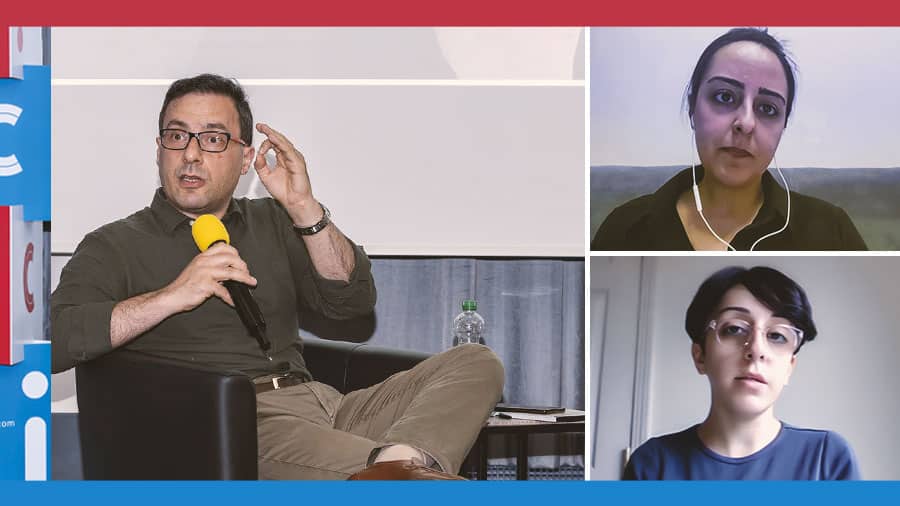Yasmine Ansari
Reproductive Governance in Post-Revolutionary Iran
Pardis Gharehbeglou
Formation of Transplant Medicine In Post-Revolution Iran: An Anthropological Perspective
Moderator: Mazdak Daneshvar
Yasmine Ansari
Reproductive Governance in Post-Revolutionary Iran
At the 1994 International Conference on Population and Development (ICPD) in Cairo, delegates from 179 countries, including the Islamic Republic of Iran (IRI), signed a Program of Action that recognized reproductive health as a human right for the first time. By adopting the ICPD Program of Action, the IRI is committed to ensuring that women and girls have access to reproductive health information and services and are able to make informed decisions about their reproductive bodies and lives, free from violence, discrimination, and coercion.
However, eighteen years after ICPD, in response to rising concerns over the declining trend in population growth, the statefunded family planning program was repealed. Furthermore, in the past decade, three controversial bills that outlaw the free distribution of contraceptives, prohibit voluntary sterilization, and expand the role of security agencies in monitoring the reproductive practices of the populace, among other measures, were ratified.
In this context, this paper investigates the transformations of reproductive politics in post-revolutionary Iran. In doing so, the framework of reproductive governance as an analytic tool for tracing the Islamic Republic’s shifting political rationalities within the domain of population and reproduction is applied. Moreover, three distinct periods in the history of reproductive politics since the establishment of the IRI are delineated.
Accordingly, the objectives and provisions of population and reproductive policies along with the Islamic Republic’s various strategies for managing population size and controlling women’s reproductive practices in each period, are discussed.
In particular, this paper assesses the current and potential impacts of the brand new pronatalist policies of the last decade on women’s reproductive health and lives, demonstrating how the proposed restrictions and punitive measures will disproportionately jeopardize the health of low socioeconomic status women who already have limited choices when it comes to their reproductive health and controlling their bodies. It also argues that while antinatalist and pronatalist regimes of reproductive governance appear opposite, they contain similar goals (defining and regulating desired and undesired population growth) and are not motivated by a concern for women’s autonomy.
Pardis Gharehbeglou
Formation of Transplant Medicine In Post-Revolution Iran: An Anthropological Perspective
Iran boasts one of the most successful organ transplant procurement systems, both for living and deceased donors, within the Islamic world and the broader region. This abstract seeks to critically examine the concept of success within this context and elucidate the multifaceted narratives that underpin such achievements.
Adopting an anthropological lens, my research has delved into the intricate interplay of cultural beliefs and conflicting political ideologies that have played a pivotal role in legitimizing and institutionalizing diverse forms of transplant medical knowledge in Iran. An essential aspect is unravelling the processes through which certain voices gained dominance, leading to the ascendancy of specific institutional forms.
This investigation aims to discern how social interests were woven into the fabric of shaping moralities and judgments, thereby contributing to the planning and institutionalization of transplant medicine in Iran.
Understanding the diverse narratives representing various interest groups is imperative for comprehending the nuanced dynamics influencing policy formation. Moreover, this study underscores the importance of amplifying silenced voices to construct a more comprehensive portrayal of transplant medicine in Iran.
By bringing these marginalized perspectives to the forefront, a more nuanced understanding of the socio-cultural landscape surrounding organ transplantation can be achieved. The research also addresses the impact of social, economic, and political conditions on the reconstruction of illness and ailing bodies.
Exploring how this knowledge is embodied at different levels of the healthcare system in Iran adds a layer of complexity to the analysis, providing insights into the broader implications of the successful organ transplant procurement system within the country.



